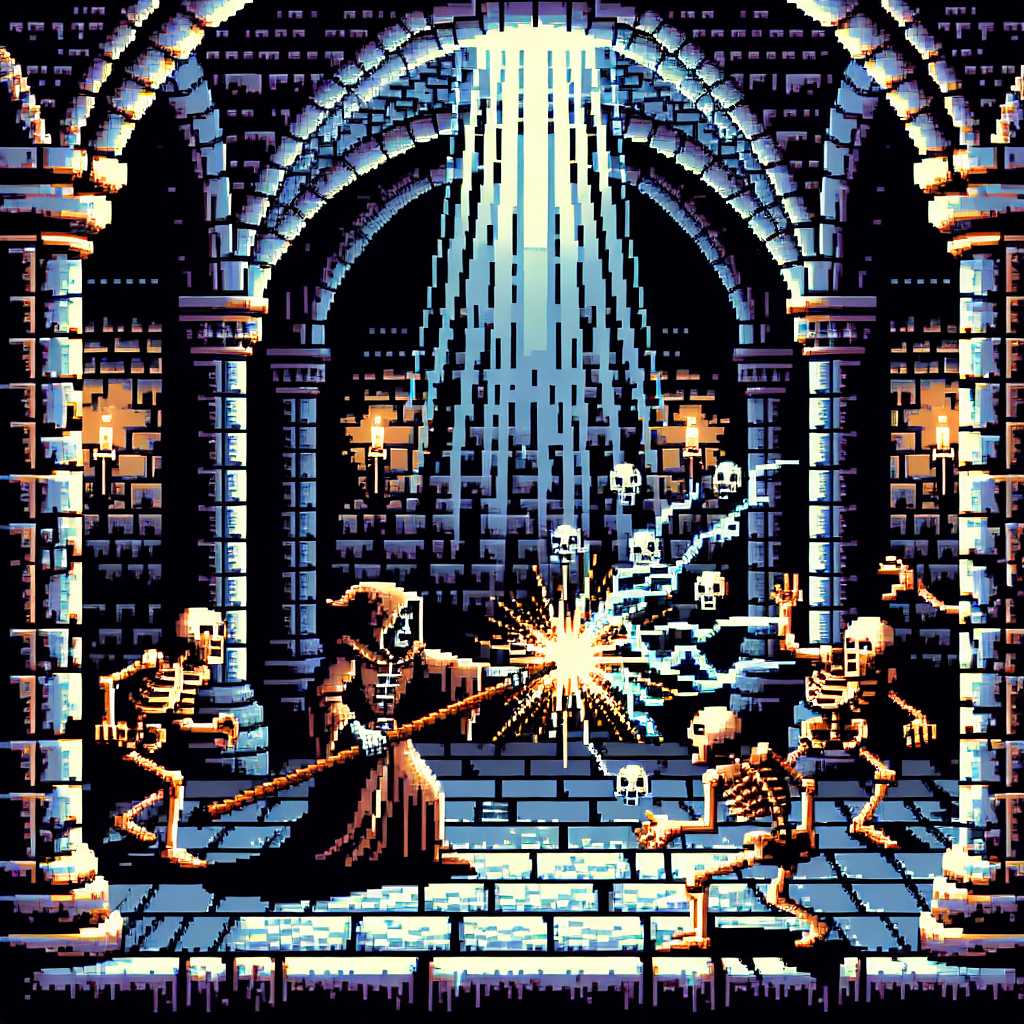A Comprehensive Look into the Game Heretic and Its Lasting Legacy
Heretic is a dark fantasy first-person shooter video game developed by Raven Software and published by id Software in December 1994. Utilizing a modified version of the Doom engine, Heretic was one of the first games to feature inventory manipulation and the ability to look up and down. Its atmosphere, intricate level design, and the use of mythological and magical components set it apart from its contemporaries and marked it as a seminal entry in the genre.
The Innovation of Heretic’s Gameplay Mechanics
Heretic introduced several gameplay innovations that were not present in first-person shooters at the time. Among those was the use of an inventory system allowing players to carry items that could be used at their discretion, adding an element of strategy. This allowed players to hold onto powerful artifacts and choose the optimal moment to use them, such as Tome of Power which temporarily enhanced the player’s weapons.
Another significant addition was the ability to look up and down in a 3D space, which although seems basic by today’s standards, was revolutionary for the time. This added verticality to the gameplay, requiring players to aim across different elevations – a mechanism that had not been experienced before in this genre.
Atmosphere and Setting: A Dark Fantasy Retelling
Heretic’s atmosphere stood out as one of its most prominent features. Set in a dark fantasy world called Parthoris, it sees players taking on the role of Corvus, an elven hero bent on revenge against the game’s primary antagonist, D’Sparil — one of the three dimension-traveling Serpent Riders.
The game boasts a robust narrative feel for 90s standards. With levels set in waterlogged dungeons, windy cliffs, and lava-filled catacombs, Heretic captures an ambiance much different from the science fiction-oriented Doom . This darker setting served well to horrify and enthrall players with creatures like undead warriors, golem-like ophidians, and ghastly wraiths populating distorted medieval landscapes fashioned with ominous textures.
Multiplayer Features: Deathmatch and Cooperative Play
Heretic was also distinguished for offering multiplayer modes akin to Doom’s. Players could engage in co-operative playthroughs or combat each other in ‘deathmatch’ modes. Despite lacking contemporary online services back then, the game had fan-formed networks organizing matches using dial-up connections or LAN parties, where Heretic’s labyrinthine maps yielded high replay value with secrets and traps that retained their charm over countless sessions.
Modding Culture and Expansion Packs
Much like Doom, Heretic owes some of its longevity to a highly active modding community. Players not only constructed new levels but full-fledged mods that further expanded on Heretic’s legacy. The game famously featured three episodes initially, but network version updates added another two known as “Shadow of the Serpent Riders”, extending playing content significantly.
Custom-built graphic patches and creative add-ons boosted interest around the game after its peak years too –– showcasing how invested fans remained wistful for the immersive world Raven Software had crafted.
Graphical Innovations and Technical Advancements
Raven Software’s polishing of the Doom engine allowed for advanced special effects, thus enriching visuals captured within Heretic. Translucent textures brought ghostlike enemies to life while dynamic lighting effects painted each stage with an eerily spellbound essence.
Level design incorporated more complex architectural structures thanks to enhancements made possible through Doom’s engine customization improving on rendering capabilities – giving rise to soaring towers, complex fortresses with subtle heights variations interesting myriad pathways ripe for exploration.

